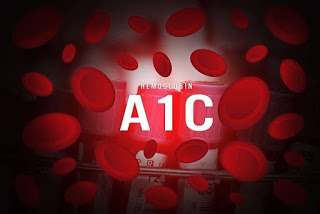Bariatric surgery is one of the Three Pillars of treatment of obesity. In the early days, it was thought that bariatric surgery worked by decreasing energy absorption from the gut and restricting stomach size, but it has since become clear that other mechanisms are at play.
A recent review, published in Endocrine Reviews, summarizes what we currently know (and what we don’t).
The main bariatric surgeries performed in Canada these days are gastric bypass surgery (RYGB) and sleeve gastrectomy (SG), so we’ll focus on these two surgeries. (the gastric band is no longer recommended in Canada)
Mechanisms contributing to weight loss after bariatric surgery include:
1. Reduction in appetite.
A decrease in hunger and increase in satiety are clearly important factors resulting in weight loss. This is because of a change in the satiety (fullness) and hunger hormones that happen after RYGB and SG. These hormones talk to the brain, amping up the fullness signals (from the POMC neurons) and turning down the hunger signals (from the AgRP/NPY neurons). Disruption of the vagal nerve system takes place after both surgeries, but it’s not clear if this affects appetite or weight loss.
2. Changes in food preferences.
After both types of surgery, some people (but not all) report a shift in preference from sweet/fatty food towards healthier options. In these individuals, it seems that there is less firing of the reward system in the brain in response to sweet/fatty foods, especially after RYGB. The changes in gut hormones after bariatric surgery (including the hormones GLP1 and PYY), and changes in signaling from the vagus nerve, are involved in this effect. For some people who struggle with dumping syndrome after surgery (nausesa, sweating, and dizziness early after eating sugary or fatty foods), learning to avoid foods that set off these symptoms are likely to shape food preferences as well. It has been questioned whether a change in taste happens after bariatric surgery, but the jury (ie the data) is still out on that one. It seems that people who lose more weight after surgery are those who eat a lower fat, lower glycemic index , and higher protein diet; these healthier choices may be easier to stick to for those whose food preferences are altered.
3. Increase in energy burn? (energy expenditure)
The bottom line here is that…. we don’t know the bottom line. The data is conflicting, with some studies showing an increase, some showing no change (including a study I co-authored from my time at the University of Copenhagen), and some showing a decrease in energy expenditure. It remains unclear whether energy expenditure changes after either type of bariatric surgery contribute to weight loss.
4. Bile acids.
Circulating bile acids increase after both RYGB and SG. Bile acids target the transcription factor FXR, which controls the transcription of genes involved in fat metabolism. Bile acids also target the membrane protein TGR5, which in turn can increase post meal secretion of GLP1, and may increase energy burn in fat cells (by turning white adipose tissue to ‘beige’). Stimulation of the TGR5 and FXR receptors stimulate release of FGF19, which works to turn off the hunger neurons AgRP/NPY in the brain. There is much more to the story of bile acids that we still need to learn.
5. Gut bacteria (microbiota).
The bacteria that live in our intestines have an important influence on body weight. They can metabolize indigestible complex carbs, influence the absorption of nutrients, have an influence on the production of appetite hormones in the gut, and even have a role in the energy producing capacity of our brown fat. People with obesity have a different profile of bacterial species in their gut compared with people of healthy body weight. Changes in favor of healthier bacteria occur after gastric bypass surgery, but these same changes are not seen after the sleeve; excluding the first part of the intestine from the food transit route after RYGB may be required to see these changes in gut bacteria.
BOTTOM LINE: There are many mechanisms at play which contribute to weight loss after bariatric surgery, with much more to learn!
Share this blog post using your favorite social media link below!
Follow me on twitter! @drsuepedersen
www.drsue.ca © 2022












